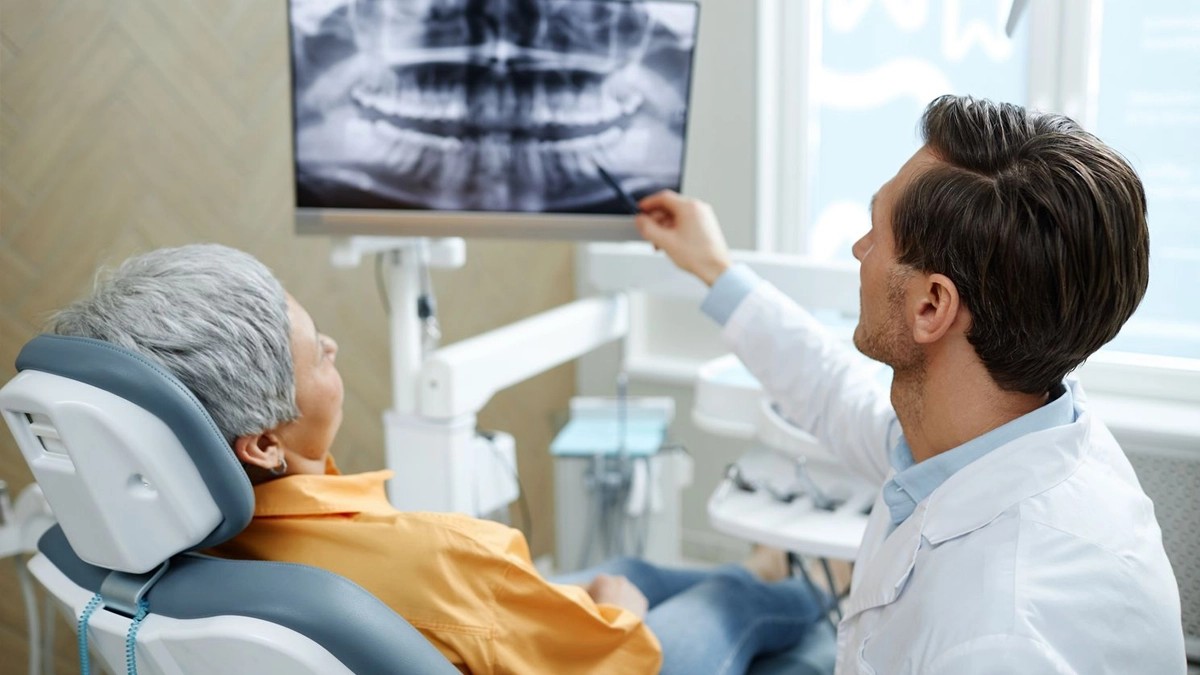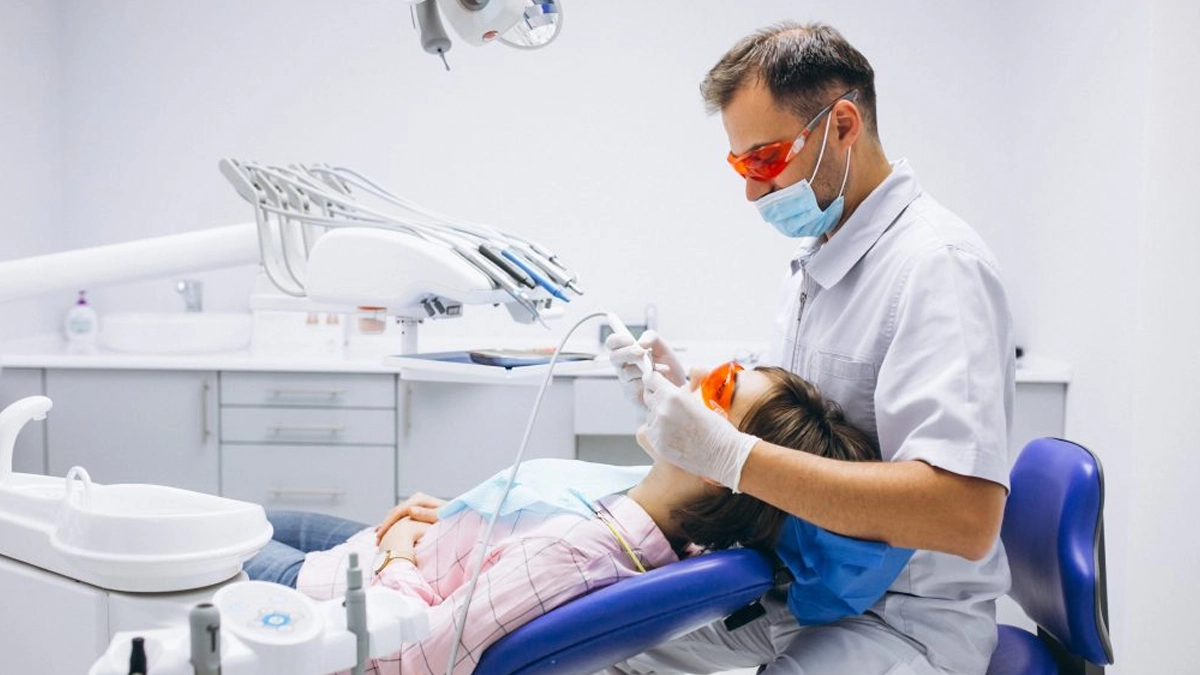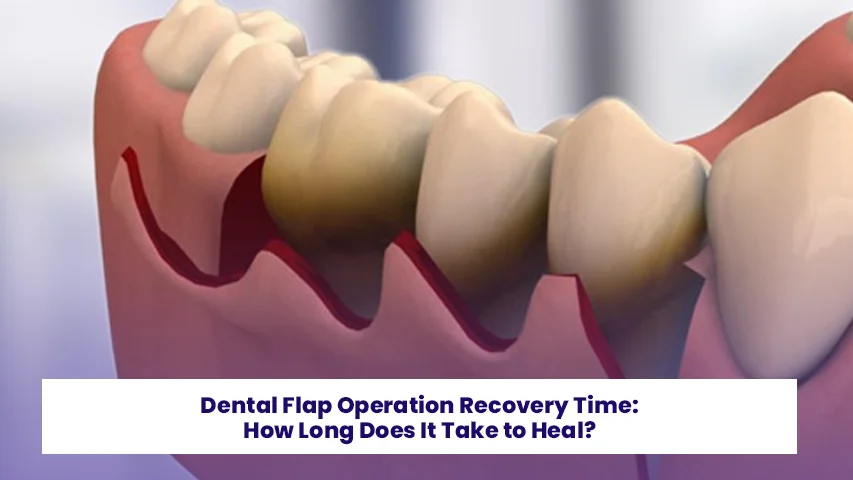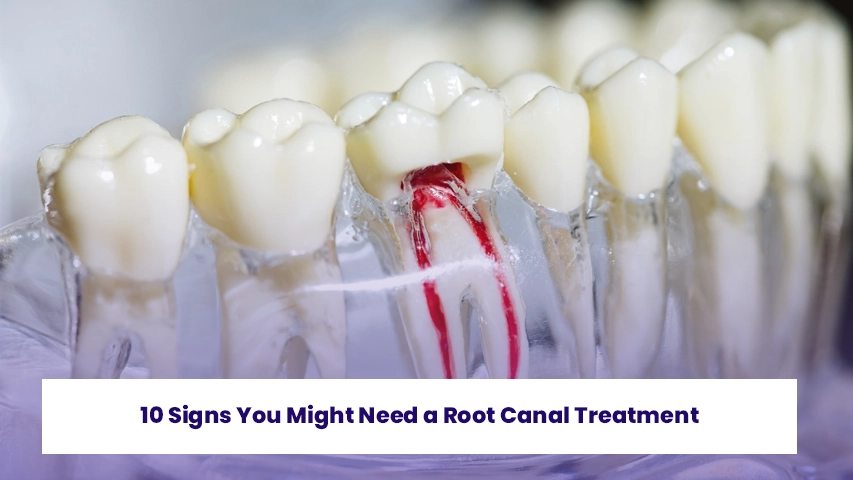
10 Signs You Might Need a Root Canal Treatment
18 September 2025Dental Flap Operation Recovery Time: How Long Does It Take to Heal?
Patients often express concern over the duration of full and comfortable recovery after a dental flap operation. This is because the procedure is a flap operation to a dental region which may include disease ridden areas and helps expose deeper portions of teeth and bones to clean them; scheduled operations serve to treat areas affected by dental infections. Even though the procedure itself is a type of treatment, the healing aftermath can be troublesome for some. Effective treatment management requires understanding what to expect after the procedure, the duration of recovery, and how to deal with post procedure pains.
The patient’s general well being, the complexity of the surgery, and adherence to the aftercare procedures greatly influence the recovery time after oral surgery. While mild cases show improvement within a week, full recovery in complicated cases takes weeks. Considering recovery is never standardized, identifying the recovery stages and methods to reduce swelling and pain is essential for less complicated recovery. This article acts as a comprehensive guide and covers the expected timelines to self care; hence you are equipped with all that you need to know concerning flap surgery.
What Is a Dental Flap Operation?

A flap operation is a type of dental surgery that is done either to treat advanced gum disease or to gain deeper access to the roots of teeth and the supporting bone. This method is done by lifting a portion of the gum tissue or “flap” so as to clean its underside in order to remove plaque and correct bone defects. Patients who do not fully respond to non surgical treatments such as scaling and root planing are usually recommended this procedure. Such treatments enable the dentist to gain deep access and fully treat the infected regions so as to slow the advancement of periodontal disease.
With such a procedure, local anesthesia is usually administered, allowing the patients to be conscious yet pain free during the process. If the periodontal condition is severe, the dentist may be required to reshape the bone or perform grafting techniques to replace the lost tissue. After the cleaning or the repair of the affected areas is done, the gum flap is placed back and sutured to restrict movement and enable healing. There is an intended outcome in these procedures, which is to maintain the existing teeth, lower the risk of infection, and enhance the oral health in the later stages.
Surgery for the treatment of periodontitis often raises concern for patients, yet flap surgery is a routine advanced treatment. Over several years of practice, clinicians have perfected the technique and made it reliable, efficient, and safe. Along with the surgery, the healing phase is just as critical for the procedure’s sustained success. For that reason, all patients undergoing the procedure need to know the period of recovery for a dental flap surgery.
Typical Recovery Timeline After Flap Surgery
Regarding a dental flap operation, most individuals can anticipate an initial recovery phase lasting around 7 to 10 days. Within this period, patients initially experience a slow subsidence in both swelling and discomfort. The gums also start to heal and gradually reattach to the teeth that were treated. Cases that are more complicated, such as those involving bone reshaping or grafting, may take a few weeks to recover fully. An important consideration is that even though a patient may feel fine in a few days, the deeper tissues require more time to heal.
A lot of patients note a marked change in ease and the appearance of their gums by the end of the second week. That said, continued mild sensitivity, slight tenderness, or minor swelling may persist as the tissues get used to the new conditions. It is common for dentists to set appointments in this phase for the removal of sutures, especially when non dissolvable ones were applied, as well as for an additional check on healing. Patients who adequately adhere to oral hygiene and aftercare instructions tend to recover more flawlessly than those who do not comply with post surgical care.
In some cases, bone and tissue regeneration may take as long as 6 to 8 weeks to finish, and that depends on the healing conditions of an individual. For individuals who smoke, have diabetes, or have immune systems that are compromised, healing may take longer. Therefore, asking your dentist how long does dental flap surgery take to heal is essential, as the answer depends largely on your personal health profile and the extent of the surgery.

Factors That Influence Healing Time
Although dentists can provide a general timeline, several factors directly affect how quickly someone recovers after a flap operation dental procedure. The surgery’s complexity matters a lot; for example, a minor flap done to clean one or two teeth is likely to heal faster than a more extensive flap that involves multiple teeth and a bone shave. The patient’s oral hygiene practices both before and after surgery also matter a lot.
As I mentioned earlier, the overall health of the patient matters a lot. Patients with better health and stronger immunity heal faster. The presence of some strong diseases like diabetes or heart diseases can slow down the healing process. The way of life, which includes smoking and alcohol, tends to hinder the regenesis of the gum tissues in addition to blood circulation to the oral tissues. Age is another factor because younger patients tend to heal faster than older patients.
To conclude, the after surgical care tends to be the most important care. Patients who adhere to the cleaning, medication, and dietary requirements tend to have proper and shorter healing periods in addition to fewer complications. Failing in aftercare tends to result in a greater risk of having an infection and slower healing, as well as a greater risk of having the surgery fail. This is why understanding dental flap operation recovery time means looking at both medical factors and personal responsibility in aftercare.
Common Side Effects During Recovery
The side effects detailed below have been noticed with the flap operations. Initially, a dental operation flap may result in swelling around the treated part. This swelling apparently reaches its peak in two to three days and thereafter gradually fades. Pain is also a possibility but is usually mild and with the use of prescription medication or over the counter drugs, is fully manageable. There may be minor bleeding or in the first two days after the operation, oozing from the surgical site; both are expected to ease rapidly.
During the healing process of tissues, the roots undergo a temporary exposure. With this, patients may get increased tooth sensitivity, particularly from hot or cold foods. The temporary bad breath and unusual taste in the mouth during recovery may also be attributed to the tissues and sutures healing. All of these after impacts are short lived and get better with the right oral care and continuous use of dental rinses as prescribed by the dentist.
Everyone experiences these symptoms, but it is crucial to monitor their severity. In case of swelling, pain, and bleeding, if these symptoms become severe instead of improving, the patient should be in contact with their dentist as soon as possible. The complications that arise as a result can be minimized in the early stages, which can ensure the recovery is maintained as planned.
How Long Does Dental Flap Surgery Take to Heal?
Every dental surgery patient encounters the same concern—how long dental surgery recovery lasts. Every person experiences recovery differently, but most people begin to feel better after 7 to 10 days. The initial stage of soft tissue healing, particularly around the gums, generally lasts for two weeks, while the healing of deeper tissues and bones can take anywhere from six weeks to several months, depending on the procedure.
It is crucial to understand the difference between ‘feeling healed’ and ‘being fully healed.’ In the absence of appropriate oral care, the face might still be susceptible to further injury unless patients adhere to proper hygiene and care. The healing timeline is extended by smoking, poor oral hygiene, and chewing on hard foods. This explains why dentists are strict on follow up visits and controlled oral care, even when patients insist they feel alright.
The healing period can extend to several months if additional treatments such as bone grafting or extensive flap procedures are undertaken. Most patients report that the benefits are well worth the wait—improved gum health, decreased risk of infection, and preservation of natural teeth. With proper care, the results of a flap operation dental can last for many years.
How to Reduce Swelling After Flap Surgery

Among the many discomforts post surgery, swelling after flap surgery stands out as the most prominent concern. Learning how to reduce swelling after flap surgery is crucial to making the recovery process smoother. The initial actions to take include site specific face massage and applying a cold compression. This reduces the swelling by restricting blood flow within the first twenty four to forty eight hours post surgery. Another effective method is to keep one’s head elevated, particularly while resting or napping. Taller blood flow to the gums as one sleeps on their back increases swelling and discomfort. Refraining from any form of physical exercise is crucial in the initial days since such activity elevates blood pressure and hampers recovery. While light activity is permitted, fervent exercise and lifting of weights must be refrained from.
In relation to the swelling, drugs are as important. The dentist will either prescribe anti inflammatory medications or give guidance on the self medication that can be used. Pain and swelling will be manageable if one strictly follows instructions. In addition, saltwater rinses and even some mouthwashes that might be prescribed can assist in cleaning the area to prevent infection and additional inflammation. These, along with good care, help in controlling the swelling to a great extent.
Diet and Lifestyle Tips for Faster Recovery
Just as with any medical procedures, there are guidelines that one must strictly follow to ensure quick recovery after a dental flap operation. One of the most important is the diet. Within the first few days of the operation, one must stick to food like yogurt, soups, and mashed potatoes. Hot, spicy, or crunchy foods, as well as any that can cause irritation to the surgical area must be strictly avoided. Alongside proper diet, proper hydration must be observed as it increases circulation to the tissues and aids healing. In addition, patients must also avoid alcoholic beverages as they may slow down the healing process.
There are other lifestyle changes that need to be considered as well. Take smoking for instance, which can be considered the most harmful habit when it comes to the healing of the gums. For one, the tobacco and smoking products have chemicals that impair blood flow. In addition to that, the risk of infections goes up, all of which make the healing much more difficult. Patients are strongly encouraged to quit smoking before and after the surgery to facilitate the healing process. In a similar manner, a reduction in caffeine consumption may be beneficial as it increases sensitivity and delays hydration.
Alongside nutritional adjustments, managing stress and getting adequate rest also aid in quick recuperation. The body needs to be rested properly for recovery to take place and excessive stress can be detrimental to the immune system. The use of relaxation methods like meditation or mild yoga can be very helpful in creating the healing environment and it helps in the recovery both physically as well as emotionally.
Long Term Care After Healing
Even after the initial healing period, maintaining the results of a flap operation dental requires consistent oral care. To prevent the recurrence of a gum disease which has drastic consequences, professional cleanings combined with daily flossing and brushing are essential. To maintain the healing gums along with the non healing plaques, a soft bristled toothbrush along with non abrasive toothpaste is recommended. Dentists need to keep an eye on the gum health and optimally check for the stability of the flap operation results. To better strengthen the gums and teeth, doctors may prescribe special mouth rinses or anti bacterial prescription toothpaste. A proactive approach to dental health can greatly reduce the risk of tooth loss among other complications.In addition to oral care, the rest of one’s lifestyle will continue to shape one’s outcomes. Strong oral health hinges not only on a good diet, but also on the avoidance of smoking as well as stress. The positive effects of the dental flap operation are permanent, provided one keeps caring for their oral health, and thus serve as long term benefits that one enjoys.













